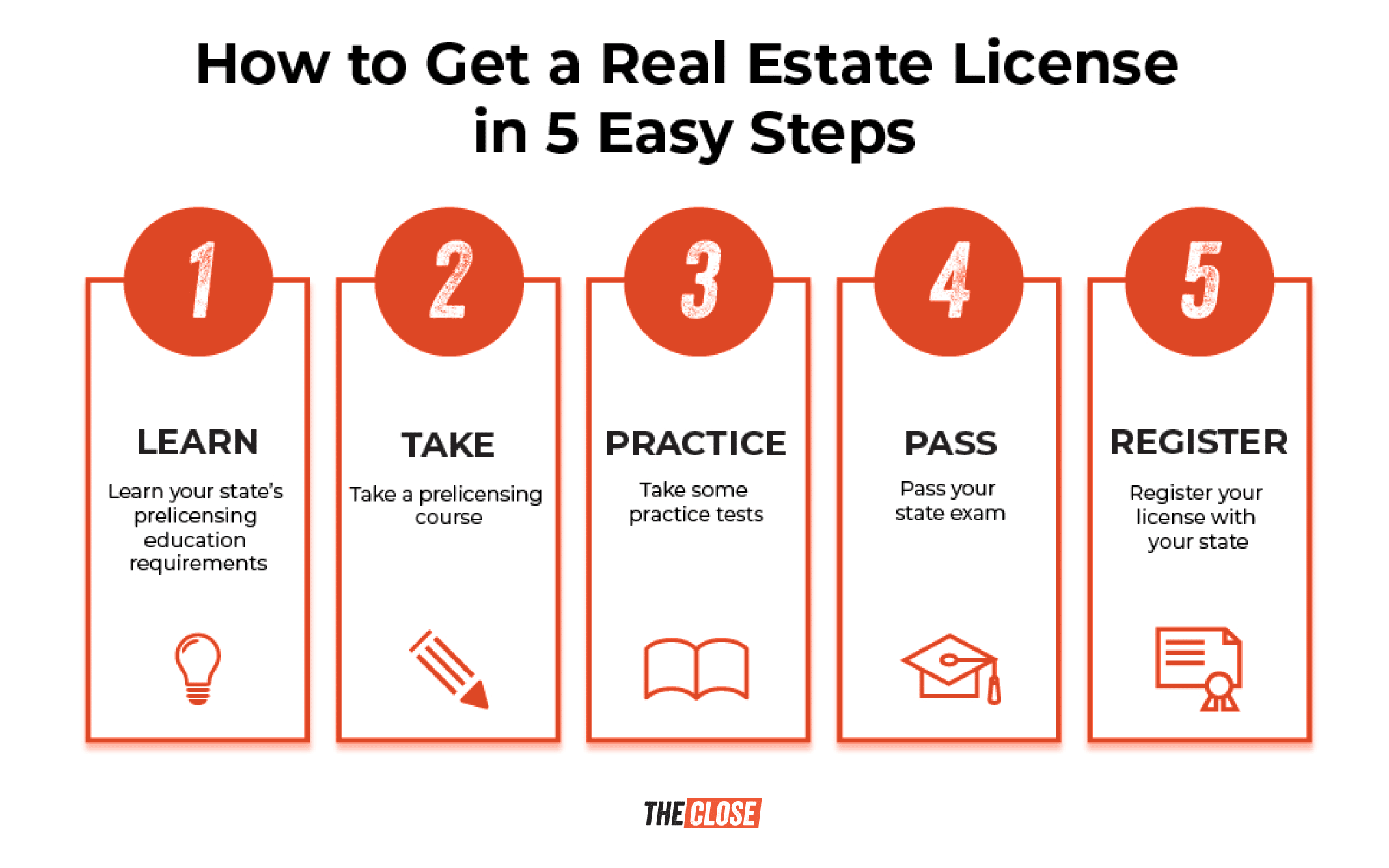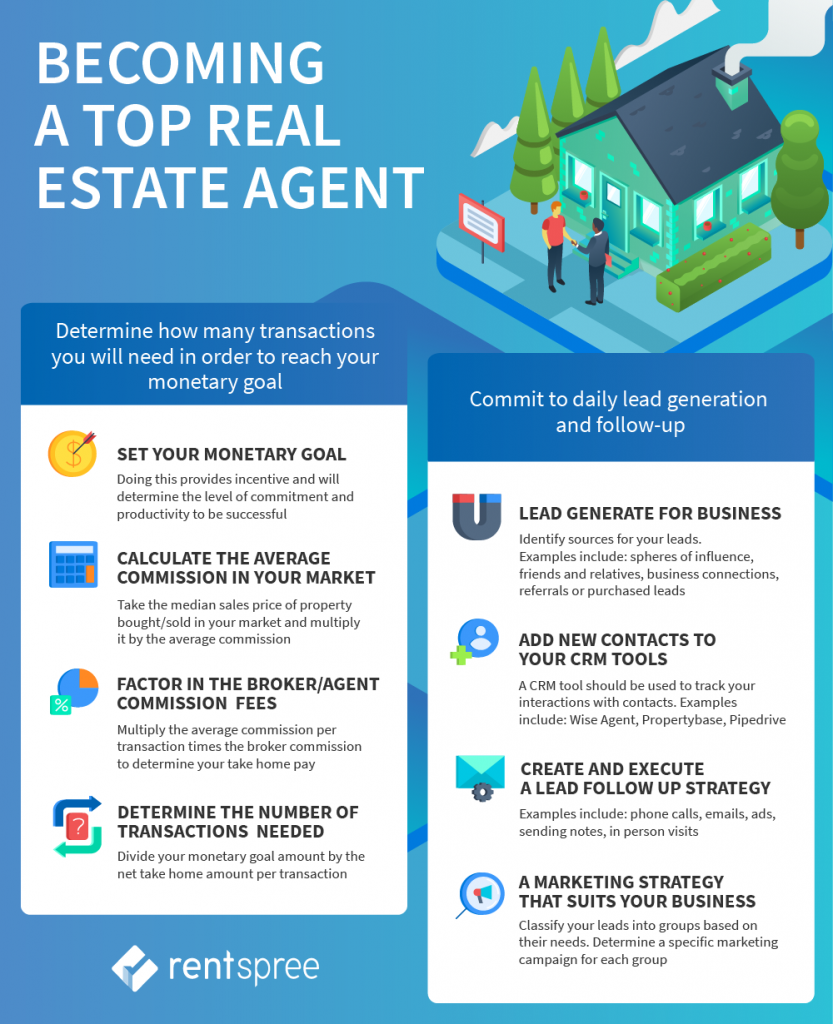How To Get Into Real Estate
Obtaining a real estate license is the essential first step for individuals looking to explore a career as a real estate agent or broker.
Understanding the purpose and various types of licenses, along with the requirements for obtaining them, is crucial for aspiring real estate agents in the field.
Let’s explore more about getting into real estate and the licensing requirements.
Real Estate Licensing Basics

Purpose and Types of Licenses
Real estate licenses serve to regulate and standardize the practice of real estate transactions, ensuring that professionals in the industry adhere to ethical and legal standards.
There are primarily two types of licenses: the salesperson license and the broker license.
Salesperson License
The salesperson license is the entry-level credential for individuals seeking to work as real estate agents.
With this license, individuals can represent buyers and sellers in real estate transactions under the supervision of a licensed broker.
Salesperson license holders typically focus on tasks such as prospecting clients, conducting property showings, and facilitating negotiations.
Broker License
The broker license is a more advanced credential that allows individuals to operate independently and oversee their own real estate transactions.
Brokers have additional responsibilities compared to salespersons, including managing other agents, handling escrow accounts, and providing guidance on complex real estate transactions.
To obtain a broker license, individuals must typically fulfill additional education and experience requirements beyond those for a salesperson license.
Requirements for Obtaining a License

The requirements for obtaining a real estate license vary from state to state, but they generally include several key components.
Educational Requirements
Prospective licensees are typically required to complete pre-licensing education from an accredited institution or program.
The number of required hours and specific course topics vary by state but generally cover fundamental principles of real estate law, ethics, contracts, and property management.
Examination Process
Upon completing the educational requirements, individuals must pass a state-specific licensing exam administered by the real estate regulatory agency or a designated third-party testing provider.
The exam assesses candidates’ knowledge of real estate laws, regulations, and practices to ensure competency in the field.
Background Checks and Prerequisites
In addition to education and examination, applicants may need to undergo background checks, provide fingerprints, and meet other prerequisites such as minimum age requirements and good moral character standards set by the state regulatory authority.
Steps to Obtain Your License

Securing a real estate license involves a series of steps, including preparing for educational requirements, successfully passing the licensing exam, and fulfilling post-licensing obligations.
Preparing for Education Requirements
Before trying to obtain a real estate license, aspiring real estate agents must first prepare for the educational requirements mandated by their state’s real estate regulatory authority.
This typically involves enrolling in pre-licensing courses offered by accredited institutions or online programs.
Prospective licensees should research their state’s specific requirements regarding the number of educational hours needed and the topics covered in these courses.
Taking the time to thoroughly study and absorb the material provided in these courses is essential for passing the licensing exam and laying a solid foundation for a successful career in real estate.
Taking and Passing the Licensing Exam
Once the educational requirements have been completed, the next step is to take and pass the licensing exam administered by the state regulatory agency or an approved third-party testing provider.
The exam assesses candidates’ knowledge of real estate laws, regulations, and practices to ensure competency in the field.
To increase their chances of success, individuals should dedicate ample time to study and review the material covered in the pre-licensing courses. Utilizing practice exams, study guides, and other resources can help familiarize candidates with the format and content of the licensing exam.
It’s important to approach the exam with confidence, focus, and a thorough understanding of the material to achieve a passing score and obtain the coveted real estate license.
Completing Post-Licensing Obligations
After successfully passing the licensing exam and obtaining a real estate license, newly licensed agents may be required to fulfill post-licensing obligations mandated by their state.
These obligations often include completing additional educational courses or training within a specified timeframe. Post-licensing education aims to provide new agents with practical knowledge and skills necessary for navigating the real estate industry effectively.
By fulfilling these post-licensing requirements, newly licensed agents can further enhance their professional capabilities and position themselves for success in their real estate careers.
Success Strategies for New Real Estate Agents

Transitioning into the real estate industry as a newly licensed real estate agent can be both exciting and challenging.
Implementing effective strategies for success is crucial for navigating this competitive field and establishing a thriving career.
Choosing a Brokerage
Researching and evaluating different brokerages based on factors such as company culture, training and mentorship programs, commission structures, and geographic coverage is essential.
Seek out brokerages that align with your career goals, offer comprehensive support and resources for new agents, and provide opportunities for professional growth and advancement.
By choosing the right brokerage, new agents can benefit from valuable guidance, support, and networking opportunities that can propel their careers forward.
Networking and Skill Development
Building relationships with fellow agents, industry professionals, and potential clients can open doors to new opportunities and referrals.
Attend industry events, join professional organizations, and participate in networking groups to expand your network and stay connected with peers and mentors.
Also, invest in ongoing education and skill development to stay ahead of industry trends, technological advancements, and best practices.
Enhancing your knowledge and expertise in areas such as negotiation, marketing, and client communication can set you apart as a competent and reliable real estate professional.
Marketing Yourself and Generating Leads
In a competitive market, effective self-promotion and lead generation are essential for attracting clients and growing your business as a new agent.
Develop a comprehensive marketing strategy that showcases your unique value proposition, expertise, and services to potential clients.
Utilize various marketing channels and tactics, such as social media, email marketing, content creation, and networking events, to increase your visibility and attract leads.
Establishing a strong online presence through professional websites, social media profiles, and online listings can help you reach a wider audience and build credibility in the industry.
You should also leverage your existing network and sphere of influence to generate referrals and word-of-mouth recommendations, which are invaluable sources of leads for new agents.
Train Agents offers top-quality online real estate courses that fit your schedule.
Get certified, boost your career, and join thousands of successful professionals today by choosing this certified school for real estate learning.




